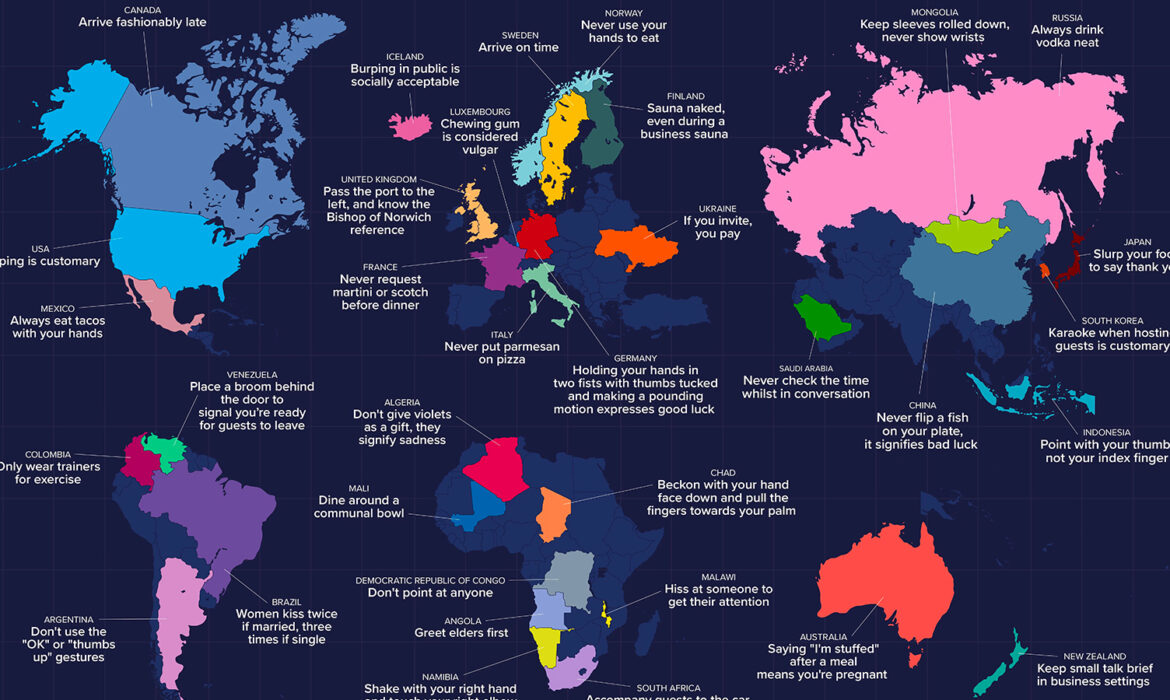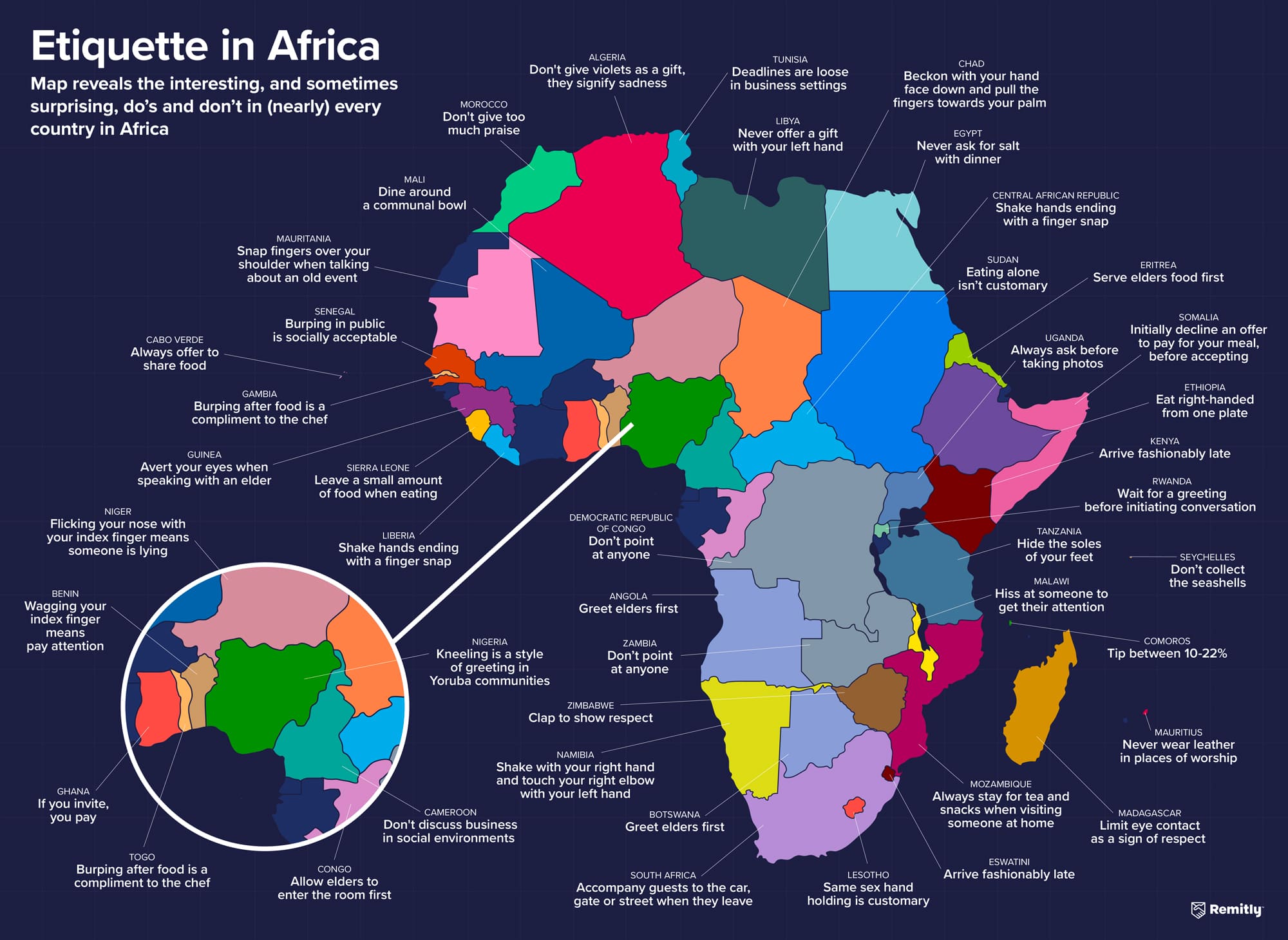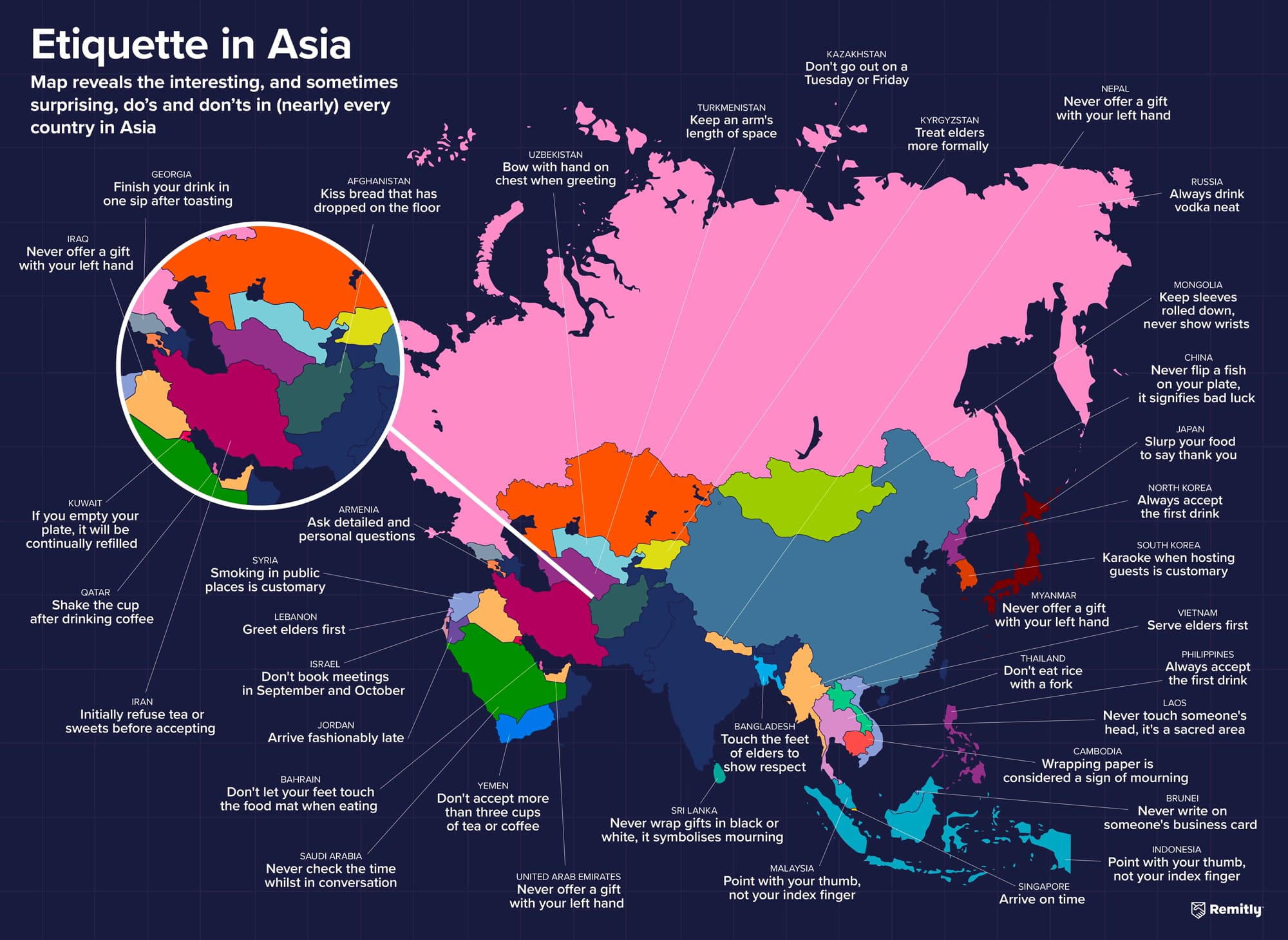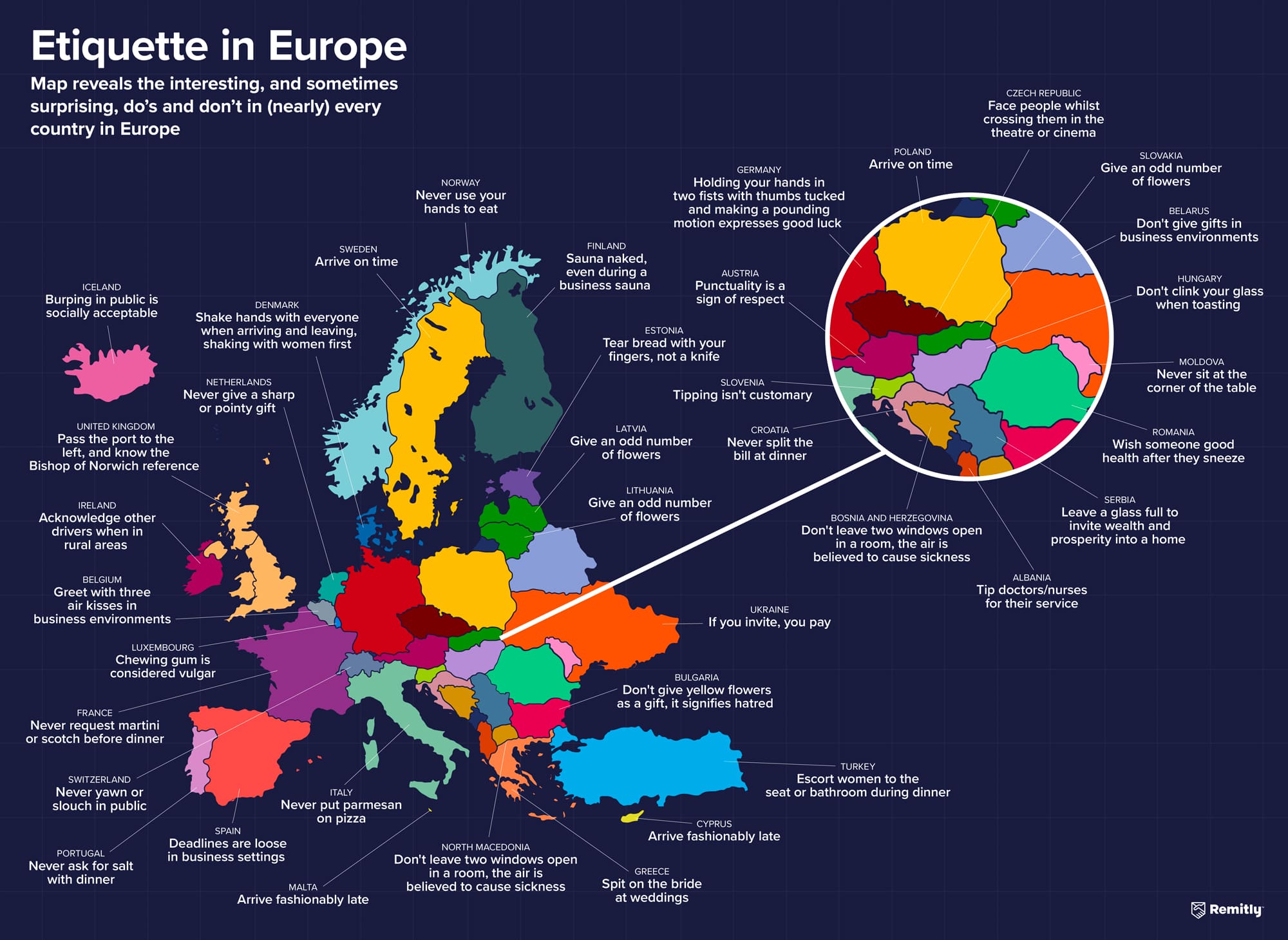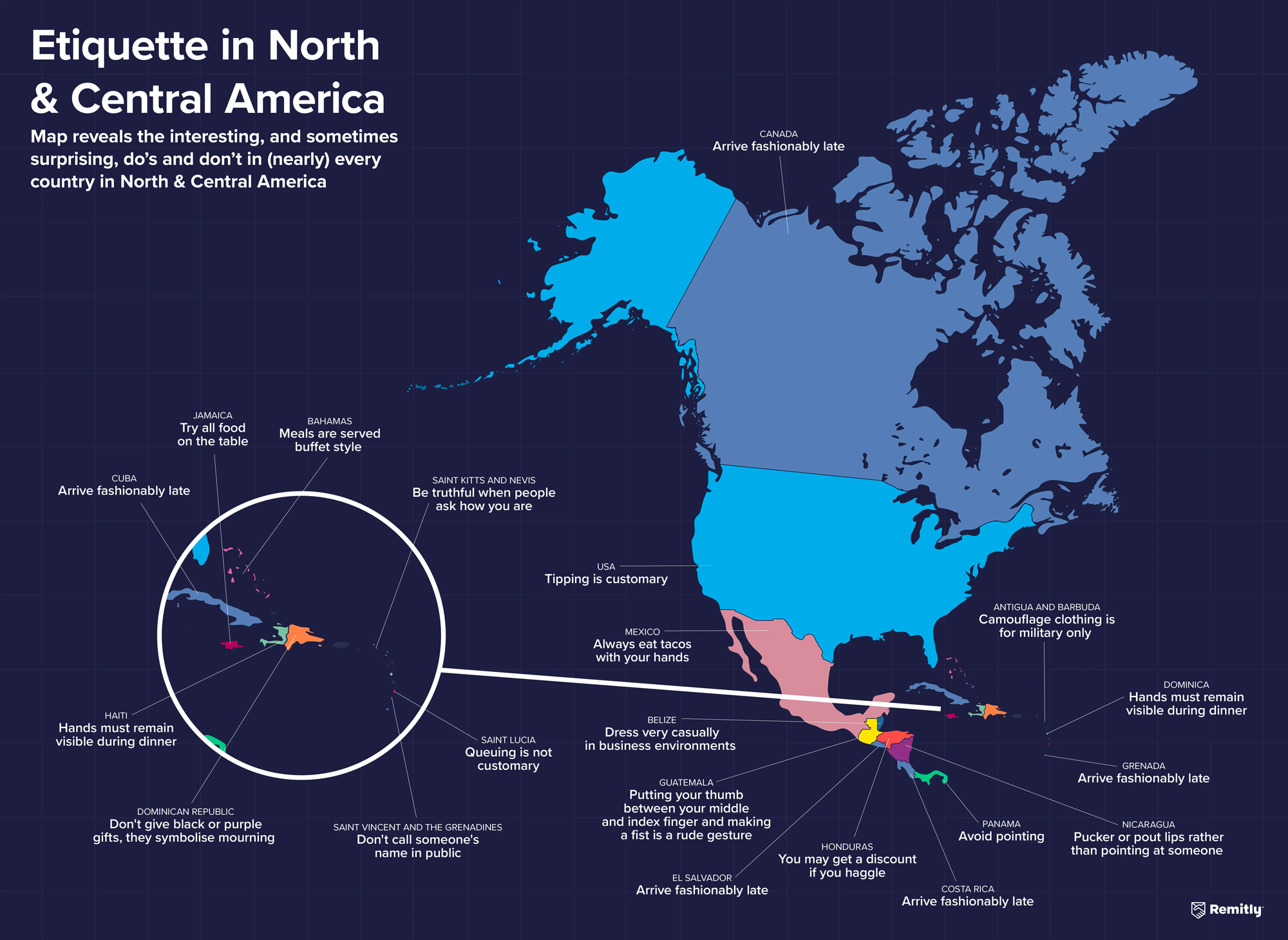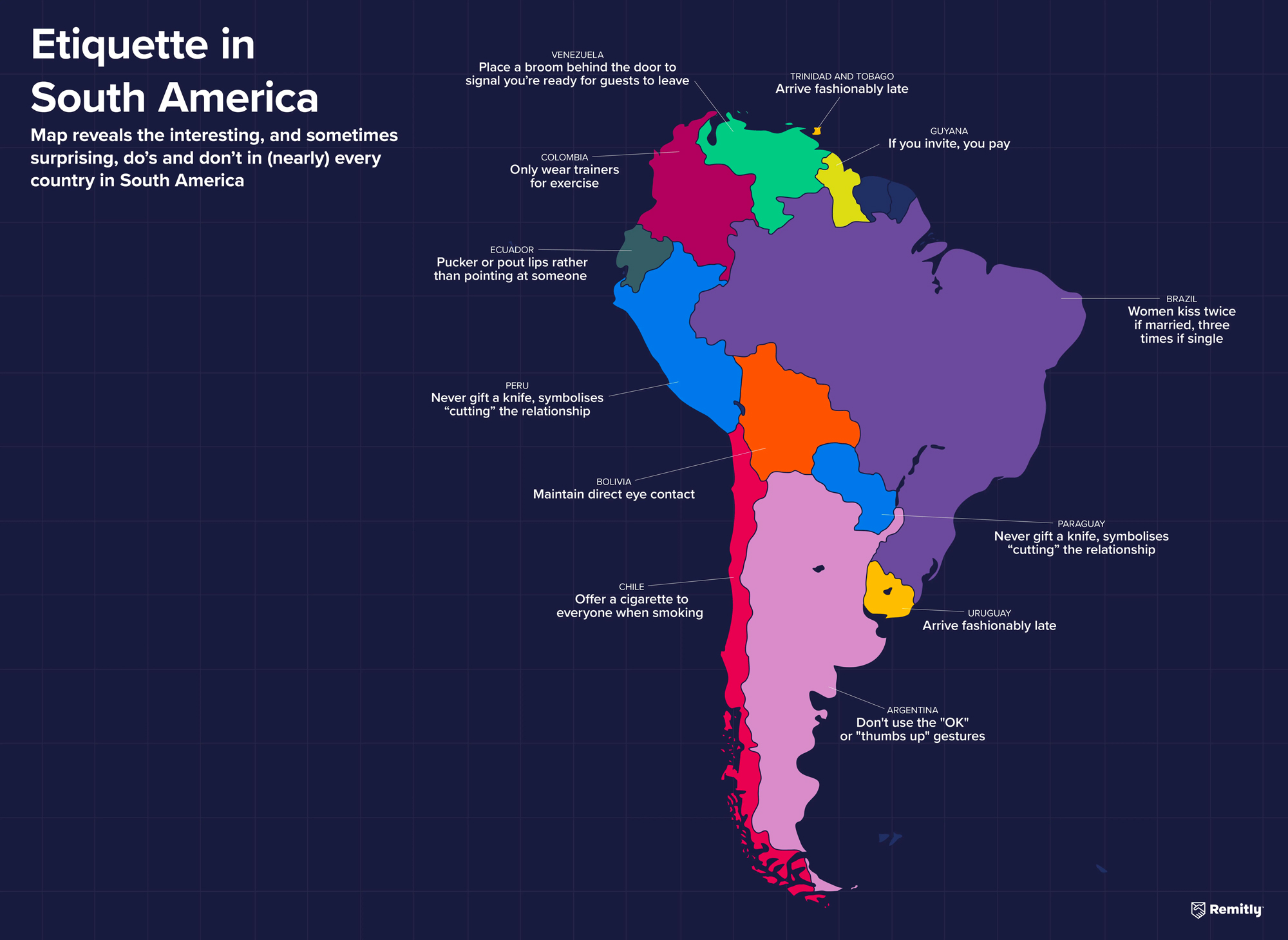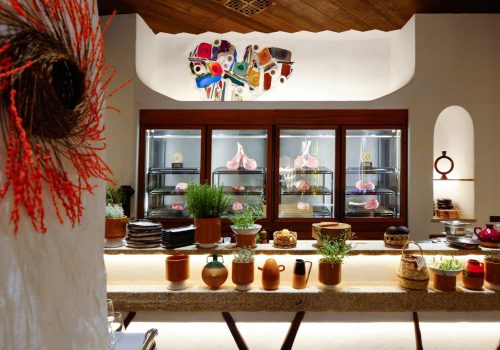Routine gestures may be impolite abroad: Remitly has created a map of what can and can’t be done in 165 countries
Every country has its own customs. That it is good to know to understand what one can and cannot do to respect local communities, but also to explore the lifestyles of each country more in depth. And in some cultures, to breach or abuse certain practices may even mean breaking a taboo. Especially if you consider that each country has its own social requisites in the matter of etiquette too.
This is the spirit underlying the first traveller’s book of world etiquette, a map that indicates the basic “rules” but also those you might least expect. The “Etiquette map of the world” by Remitly, the American online remittance services, uses infographics to illustrate various customs with focuses on 165 countries on all continents.
Etiquette changes significantly around the world, but certain types of behaviour have been singled out that recur quite often, but whose significance varies greatly from country to country, from culture to culture.
Hand gestures for example: certain gestures have a significantly different meaning with respect to what they communicate depending on where you are. In Indonesia people use their thumbs rather than their index finger to point, in the Republic of Congo to point at something, or worse yet at someone, with a finger is considered offensive.
Even the concept of being punctual or late is interpreted in specific ways based on the latitude: while the Swedes have no patience with tardiness, for Canadians arriving late is practically a rule.
Not to speak of customs about food and behaviour at the table: while in Italy it is absolutely “forbidden” to put parmesan cheese on pizza, in Mexico tacos may be eaten with the hands, in Norway no food may be eaten without cutlery, in Mali supper is served from a shared bowl, in France no martinis or scotch before dinner, in Russia vodka rigorously straight up. In Ukraine, the person who invites you to dinner pays, and in Iceland burping in public is considered a more than acceptable practice. In Australia the expression “I’m full” after a meal means “I am pregnant”. Certain superstitions are also very curious: in China it is unlucky to flip a fish over on your plate and in Algeria one never gives a gift of violets because they mean sadness. The principal rules of etiquette in many African countries revolve around food and the table. In Egypt it is considered impolite to ask for salt, because it might offend the chef suggesting that the food is not sufficiently seasoned. In Mozambique, when you visit someone at home, you must always stay for tea and snacks, because refusing might be considered rude by the host, and imply that you can’t wait to leave. In Sierra Leone one should always leave a bit of food on the plate to show that one is full, because emptying the plate means one is not fully satisfied.
In Asia, many rules of etiquette are about food and the table. In Afghanistan it is common to kiss bread after it has touched the floor, as a sign of sacred reverence. In Qatar and the Middle East, it is customary to shake the coffee two or three times after finishing it. In Japan slurping is a rather common practice, considered to be a compliment to the chef and a sign of gratitude for the meal. In Asian countries there are specific rules about gift-giving: in Cambodia and Sri Lanka, white gift wrap means mourning and in countries such as Iraq, Myanmar, Nepal, Pakistan or the United Arab Emirates, gifts should be given with the right hand because in many Muslim countries the left hand is used for personal hygiene and is sometimes considered impure.
In North and Central America, in some countries being late is considered to be rude, in others it is part of everyday life, like in Costa Rica and El Salvador. In Belize casual dress is the best choice for meeting colleagues or collaborators in the workplace. In Panama and Nicaragua, it is forbidden to point to someone in public, while in Nicaragua you have to arch your lips towards someone when referring to them.
Going further into South America, in Ecuador you also purse your lips to refer to someone. In many countries a raised thumb may be interpreted as a simple and friendly “yes” or “ok”, but in Argentina it is the opposite. Using a raised thumb or the symbol of ok is considered vulgar rather than useful. In Venezuela they think that the perfect way to suggest that guests leave a party or a meeting is for the host to put a broom behind the entrance door.
In Oceania the concept of time changes from region to region: in Papua New Guinea and in Tonga many residents live according to the concept of “island time”, where life is more relaxed and less rigid, unlike city culture where scheduling is more rigid. And as far as gestures are concerned, Samoans believe the head is the most sacred part of the body and should never be touched.
In European countries, our neighbours, certain rules may be surprising: the Portuguese don’t like people asking to add salt to their meal, in Eastern European countries such as Latvia, Lithuania and Slovakia, it is considered taboo to give an uneven number of flowers. In Bulgaria I it is considered wrong to buy someone yellow flowers, because that is often interpreted as a sign of hate. In the Netherlands, giving a pointed or sharp object brings bad luck.
On the cover: Etiquette Map of the World ©Remitly
©ALL RIGHTS RESERVED


